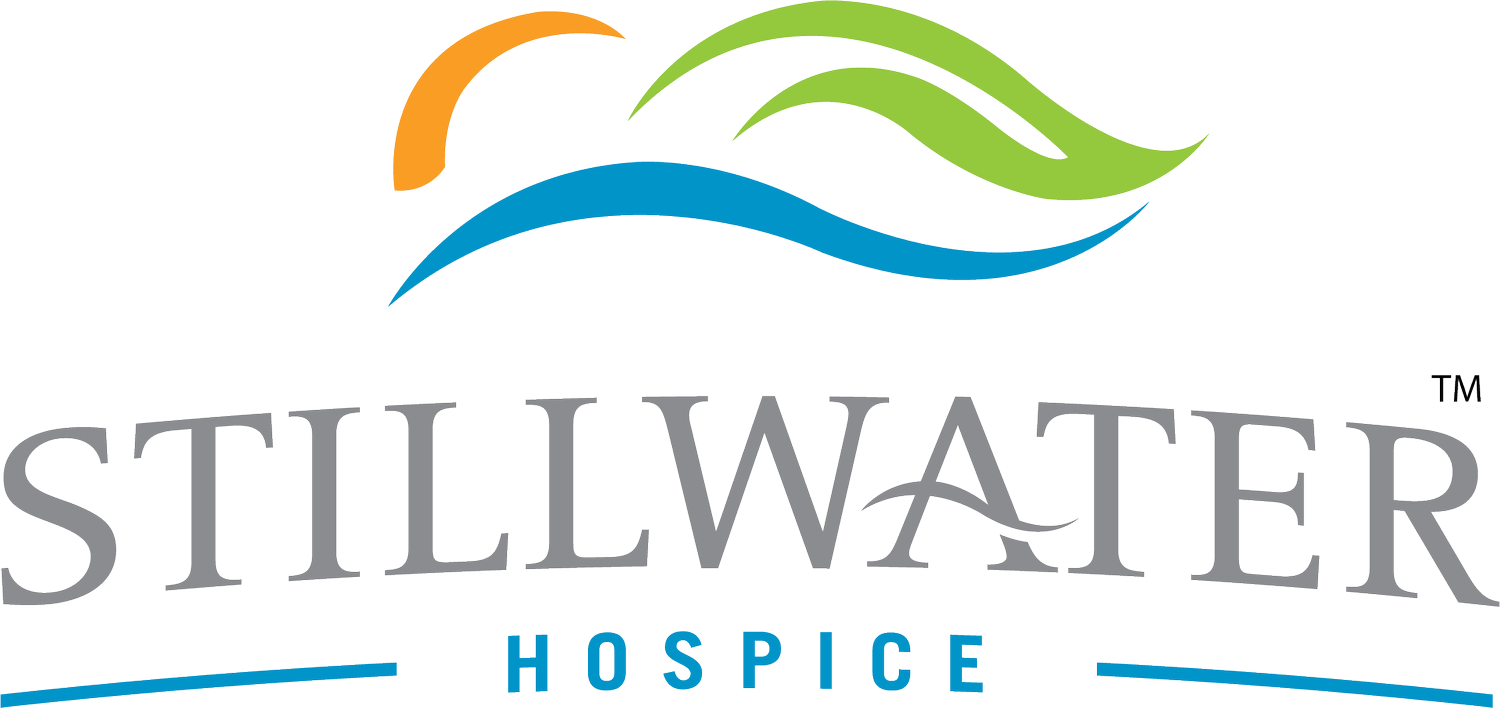
Compassionate care for life’s final moments.
Our Services
Hospice Care and Integrated Solutions
At its most basic, hospice care encompasses the services needed to maintain the comfort and dignity of a person whose life is limited. At Stillwater Hospice, however, we believe hospice care is far more than that. It is the opportunity to honor life compassionately, instill hope and allow our patients to make the most of the days, weeks, and months they may have left to live.
Hospice care serves those who have any terminal, or life-ending, condition. Therefore, it is appropriate to consider hospice once “curative” treatments—those designed to restore good health—will no longer be used. Once entering hospice, each patient receives an individualized treatment plan reflecting their personal goals, medical needs, and the level of support required.
In our experience, hospice care can positively impact a patient’s spouse, partner, and family as much as it does the patient. We can help reduce stress and worry by providing knowledge, structure, and support.
An Integrated Approach
Stillwater Hospice takes an integrated approach to hospice care; as such, you are likely to meet a number of our team members throughout your hospice experience. They may include:
Healthcare Providers: Physicians, nurse practitioners, registered nurses, and other healthcare providers coordinate and monitor all patient care. They also partner with the patient’s primary or specialty care providers to ensure the delivery of excellent medical care.
Hospice Medical Director: Our Medical Director, a local physician who has served in this community, serves as a resource and a consultant to healthcare providers, the hospice team, and patients.
Nurses: The Stillwater Hospice nursing team provides a variety of services, including direct patient care. They also play an essential role in educating patients and families about end-of-life care and the dying process itself.
Social Workers: Social workers are vital in connecting patients to needed resources within the communities. They also provide counseling services designed to comfort and support our patients, their primary caregivers, and family, helping them better understand and address the impacts of a terminal illness.
Spiritual Care: Spiritual care can take many forms based on the needs and beliefs of patients and families. Visiting with one of our pastoral care providers can often provide emotional comfort for all involved. In addition, these providers can work with local clergy to administer rites, rituals, or religious ceremonies at the time of death should the patient request them.
Other individuals who may work with hospice patients and caregivers include dietary consultants, hospice aides, light housekeepers, and volunteers.
Levels of Hospice Care Services
There are four levels of hospice care available to the patients we serve. They include:
Routine home care, delivered in a private home or a residential facility, such as a nursing home or assisted living facility
General inpatient care, which includes a change of setting when a patient requires a higher level of care
Continuous home care provides support for 8 to 24 hours as necessary during crisis periods to enable a patient to remain at home. A crisis is characterized by conditions such as unmanageable pain, severe nausea, persistent vomiting, diarrhea, or gastrointestinal bleeding.
Respite care, provided to give temporary (5 days or less) relief to the patient's primary caregiver
Don't hesitate to contact us if you have questions about hospice care, the types of professionals participating in the hospice process, or what type of care may be right for you or a loved one.
Therapy Services
Some individuals who receive hospice care from Stillwater Hospice require help developing new skills to perform everyday tasks. Often, this results from a medical condition; for example, those who have undergone a stroke may have difficulty holding a fork or other utensils.
In addition, the medical team may prescribe occupational, speech-language, or physical therapy when medically necessary. But, again, the goal is to help patients complete basic tasks and maintain function.
Additional therapies may be provided to patients and caregivers by qualified volunteers on a case-by-case basis.
Bereavement Support
Your grief process is yours alone. It does not start and stop on schedule; there is no timeline and no right or wrong way to mourn the loss of someone you love.
Stillwater Hospice offers bereavement services to caregivers and families. We have a bereavement counselor on staff to provide short-term grief counseling, including home visits or telephone calls as needed. Trained volunteers may also participate in offering these services, which last for more than one year after the time of death.
We also can connect you to additional resources in your community or local area. These supports include referrals to professionals for longer-term counseling as well as information about support groups. Attending and participating in these groups can help you safely express your grief with people who have a unique understanding of what you have gone through. You may also have the opportunity to help others deal with their grief, which enables you to find more purpose in your own.
Volunteer Opportunities
Our volunteers provide a wide range of services that benefit our patients and their caregivers. If you are interested in becoming a Stillwater Hospice volunteer, know that you will have the opportunity to bless and enrich the lives of people right in your community. We also want the experience to make you feel fulfilled as you share your time and abilities with others.
Some of our hospice volunteers opt to provide companionship and support. That can mean simply visiting them in their home, spending time talking with them, and even providing a bit of downtime or respite for primary caregivers. Helping with basic housekeeping, shopping, or other tasks can also be very helpful.
Volunteer training
Stillwater Hospice offers training for all volunteers. This instruction ensures you know what to expect and how to make the most of your volunteer experience. It also allows us to learn more about the type of volunteering you are most interested in and the amount of time you have to give.
Volunteer skills we are seeking
Specific skills and abilities are common among successful hospice volunteers. These include dependability, the ability to listen well, and sense and respond to the needs of the people you’re serving. It’s also essential that you accept and feel comfortable with the reality that the person you will get to know is reaching the end of their lives.
If you have particular skills or training you would like to share, we have opportunities for those who wish to provide specialized services. These include:
Hairstyling
Massage services
Art or music enrichment
Spiritual care
Capturing personal histories through audio or video interviews
Bereavement assistance
To learn more about volunteering with Stillwater Hospice, please get in touch with us.
“The amazing team at Stillwater Hospice helped us get my brother with cancer to the end of his trail just as he wanted comfortable, peaceful and surrounded by love. His RN's - Jody, Ashley, Mandi and Jasey were supportive to the family and very responsive.”
— Ross Riley - Billings, MT.






